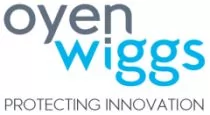In Allergan Inc. v. Sandoz Canada Inc., 2020 FC 1189 [Allergan], the Federal Court of Canada ruled that section 53.1 of the Patent Act does not permit litigants to rebut statements as to claim construction made by patent licensees based on communications from the patentee during prosecution of the patent. Rather, section 53.1 can only be invoked to rebut inconsistent statements made by the patentee.
Section 53.1 was recently added to the Canadian Patent Act to preclude patentees from asserting a position during litigation that was inconsistent with their previous statements to the Patent Office. In the present case, the plaintiff Allergan Inc. was an exclusive Canadian licensee of a drug owned by Kissei Pharmaceutical Co. Ltd. (the patentee). The defendant Sandoz Canada Inc. sought to introduce prosecution history evidence of statements made by Kissei. However, such evidence was found inadmissible under the wording of section 53.1 as Allergan was not a "patentee" within the meaning of the Patent Act.
The decision is interesting because it appears to allow the complete circumvention of section 53.1 simply by licensing a patent, and the Court recognized this "mischief" but felt that the words used in the section and the legislative history (including the rejection of a broader version of the wording that would have captured licensees during consultations on the draft legislation) required this interpretation.
A copy of the decision in Allergan is available here. A review of recent Canadian jurisprudence clarifying the scope of section 53.1 is available here.
The content of this article is intended to provide a general guide to the subject matter. Specialist advice should be sought about your specific circumstances.


